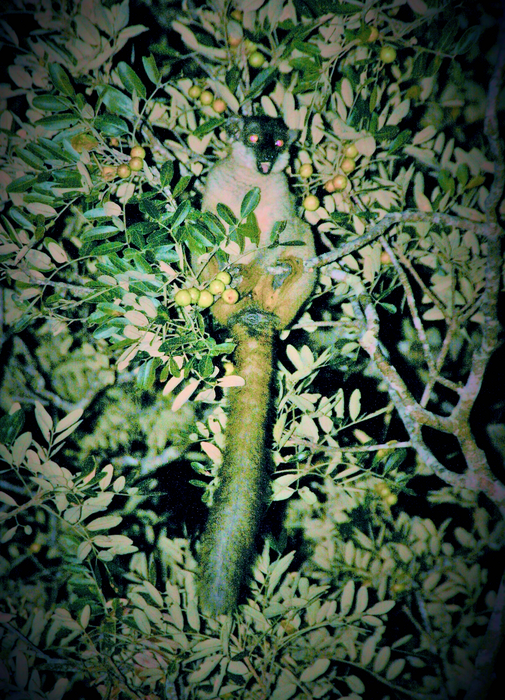Kyoto, Japan — Unchecked hunting and environmental degradation in tropical forests, which previous studies have correlated with the reduction of large animals in this biome, may impede the generational renewal of large fruit and seed-producing plant species. Such degradation takes place as scientists are still figuring out how large animals contribute to plant reproductive strategies.

Credit: KyotoU/Hiroki Sato
Kyoto, Japan — Unchecked hunting and environmental degradation in tropical forests, which previous studies have correlated with the reduction of large animals in this biome, may impede the generational renewal of large fruit and seed-producing plant species. Such degradation takes place as scientists are still figuring out how large animals contribute to plant reproductive strategies.
Now, a team of researchers at Kyoto University has found that the brown lemur is northwestern Madagascar’s single largest fruit-eating animal, swallowing fruit and dispersing seeds.
“From our day and night observations of the Eulemur fulvus, the brown lemur fed on the fruit of two species of large trees in the tropical dry forests of Ankarafantsika National Park,” explains Hiroki Sato of the Graduate School of Asian and African Area Studies.
Due to Madagascar’s isolation since the Cretaceous period, the island is devoid of the large fruit-eating birds and mammals that inhabit other landmasses, except for relatively smaller Lemuridae primates.
Weighing two to three kilograms, the largest frugivorous lemurs in the study are credited with the renewal of large-fruit plants, whose seeds measure one centimeter or more in diameter.
These primates have been observed to swallow fruit whole, while repeatedly visiting the fruit-bearing Astrotrichilia asterotricha during the dry season when the diversity of fruiting species is low.
Sato’s team followed the process from seed germination to survival for two years to elucidate the plants’ lemur-assisted reproductive strategies. Large trees with high fruit yields had higher fruit removal rates due to repeated lemur visits: as much as 59% in the case of A asteroticha.
Through lemur seed dispersal, 1.5% of the seeds produced by A asterotricha and 6.5% by its endangered counterpart, Abrahamia deflexa, spouted seedlings during the first rainy season.
Additionally, lemur-dispersed seeds may have a greater chance of survival when carried far from the mother tree to areas of abundant sunlight and fewer predators. In contrast, seeds that fall under the mother tree are most likely to be eaten by rodents and insects.
“The combination of animal behavioral strategies and the functional traits of seeds and seedlings led us to a new understanding of seed dispersal and the diversity of forest regeneration,” Sato reflects.
“By contributing to this regeneration of tropical forests, the endangered frugivore is also helping to maintainbiodiversity. Our study demonstrates the importance of intact plant-animal interaction in the context of maintaining healthy ecosystems.”
###
The paper “Significance of seed dispersal by the largest frugivore for large-diaspore trees” was published on 21 November 2022 in the journal Scientific Reports with doi: 10.1038/s41598-022-23018-x
About Kyoto University
Kyoto University is one of Japan and Asia’s premier research institutions, founded in 1897 and responsible for producing numerous Nobel laureates and winners of other prestigious international prizes. A broad curriculum across the arts and sciences at both undergraduate and graduate levels is complemented by numerous research centers, as well as facilities and offices around Japan and the world. For more information please see: http://www.kyoto-u.ac.jp/en
Journal
Scientific Reports
DOI
10.1038/s41598-022-23018-x
Method of Research
Experimental study
Subject of Research
Not applicable
Article Title
Significance of seed dispersal by the largest frugivore for large-diaspore trees
Article Publication Date
21-Nov-2022
COI Statement
The author declares no competing interests.




